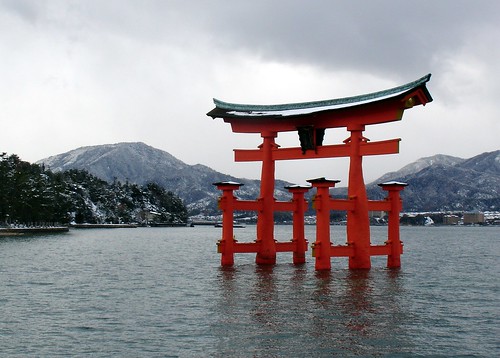
As long as the whole of mankind is not yet Enlightened, history will continue to repeat itself.
By this, the author meant to say that, in every corner of the world, now and then, there will always be turmoil and unrest of some kind.
History is there to be learned. And because it looks like the current unease in town is not going to evaporate overnight, let us find moments in history that might benefit us.
From unrest to peace and prosperity
Where in the world can we find a lesson of a society ridden with skirmishes, occasional social unrest, and political power play, yet which managed to pull itself together and emerged peaceful and strong as one single nation?
There could be many answers to this question, depending on each person's interest and/or expertise. Naturally for this author, the picture of feudal Japan comes to mind.
For almost 700 years out of its nearly 2,000 years of civilization, Japan was under warrior rule. While some historians might argue that most of that period Japan was blessed with relative peace as opposed to constant warfare, it is also undeniable that local skirmishes occasionally exploded and power play has always been in the picture.
When suffering is a blessing
The factor that made Japan a great country is the quality of her people. Sometimes, the author thinks that the many natural disasters that Japan experienced throughout history were in fact blessings in disguise. Through suffering and the need to survive, the Japanese learned the value of unity. They learned first hand that only by coming together in times of crisis, can the whole society prevail. Being highly social-minded, we should note, is among the forefront characteristics of the Japanese people.
Rather than undermining their morale, common suffering has strengthened the Japanese sense of belonging. Even during the time when war became full-blown like during the Warring States Period between the 15th and 17th centuries, the country as a whole still managed to prosper. To be precise, the characteristics of war during that period seemed, to the author at least, more like that of a modern professional sports league.
Considerate warriors
This is especially true for the Azuchi-Momoyama Period, when wars were strictly warriors' business and were fought away from town, usually in a specifically assigned area. The warriors' consideration was deliberate as they did not want to disturb the daily life of the common people. With this "arena" clearly assigned, the atmosphere was almost like the "home team" fighting with the visiting team in the home stadium.
Except for a few major battles, skirmishes tended to be short and with minimal casualties. It was not uncommon to have just a test of martial skills between leading warriors of the warring parties. Sometimes warlords brought along an enormous number of troops just to intimidate their enemy so that both parties could go to the negotiating table without anyone "losing face." As a result, military camps seemed almost like an outing and a military campaign seemed more like an extended fishing and hunting trip.
Needless to say, the generals and provincial lords that earned the most respect and became legends were those with great strategic thinking and negotiation skills who could solve conflicts without casualties.
Zen comes to the rescue
And yet, it is undeniable that a warrior's life is full of physical and mental sufferings. However, records show that the warrior class did not seem to be that bothered or discouraged by such a tough life they were living. Their unabashed courage and selfless sacrifice earned them the respect of the whole nation and soon became the country's role models. How did these men train themselves so that they could live with those sufferings bravely?
The answer is Zen. Constant mindfulness practice, especially mindfulness of death, helped change these men into transformational leaders. Also, thanks to their extensive travelling, the samurai helped make Zen popular among the common people as the latter were eager to learn the secrets of such legendary characteristics.
We mentioned earlier that one notable characteristic of the Japanese is their high social consciousness, as seen in their willingness to sacrifice themselves, doing constructive things in line of their respective duty for the benefit of society.
The ability to discern what is good for society is just one of the many benefits that mindfulness practice can offer. Even at the beginner's level, mindfulness practice already enables one to see that, in reality, there is no "self." Therefore, when the feudal Japanese did something for their society, their selflessness was sincere. They knew what selflessness was.
Hope for Thailand
When we see how far the Japanese have come as a unified country, we should not lose hope in the current situation in Thailand. Let us turn each crisis into opportunity. In Buddhism, suffering is the breeding ground for wisdom and sustainable peace. But such wisdom and peace does not just "happen." It needs to be cultivated and nurtured. The tool, the only tool, to create this much-needed peace is mindfulness practice, the vipassana meditation.
Come on, Thailand, we are a Buddhist country, like feudal Japan was. The proven solution to any trouble, social or otherwise, has always been here. The feudal Japanese came together to build a peaceful and great country out of sheer loyalty, discipline, hard work and love for their compatriots. If our rice-eating, Buddhist-influenced Asian neighbor could do it, so can we.
Let us not wait until disaster strikes before we realize the impermanent nature of life and only then start to feel compassion for each other. If the samurai class were still around, they will definitely tell us that it is our duty to the country to be mindful and to cultivate sustainable peace.







No comments:
Post a Comment